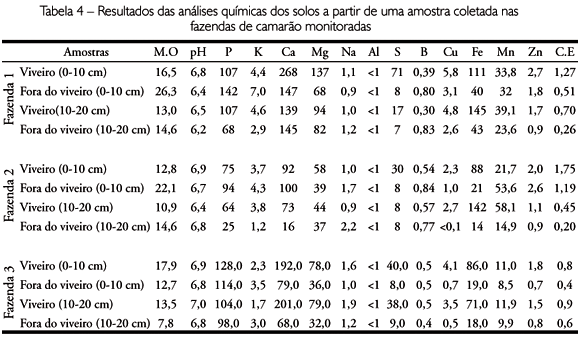This work aims to identify the main environmental aspects and impacts of the inland shrimp farming, through the analysis of the process stages and different cultivation techniques in farms located in the Baixo Jaguaribe region, Ceará State, Brazil. This evaluation was done applying questionnaires along with all farm owners or managers and making physical-chemical analysis of the effluents and the tanks soil in three selected farms. The main environmental impacts identified are related to the occupation of preservation areas by the shrimp tanks, greater conflicts between water users, contamination of the water resources that are also the main source of drinking water to the municipalities and the increase of diseases among rural workers by the inadequate manipulation of chemical products during production. These impacts can be reduced to match with the region environmental capacity, when the legislation is respected and the good practices are adopted. Besides, it is also recomended to carry out research studies that access the watershed environmental capacity to sustain shrimp farming growth, in order to orient environmental and water use licensing.
Shrimp farming; environmental impacts; Baixo Jaguaribe watershed





